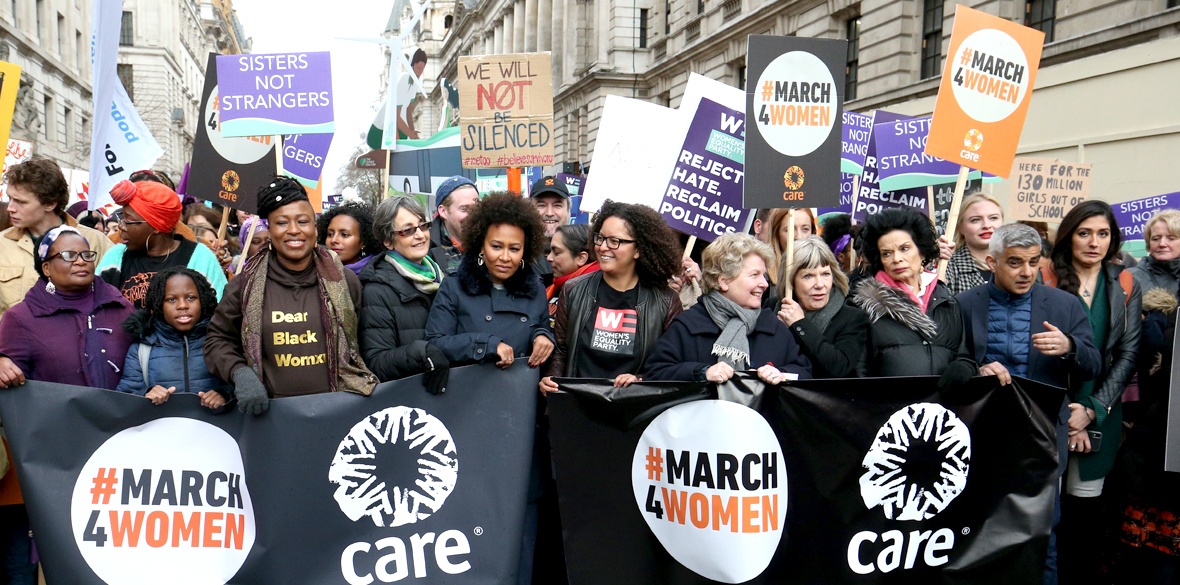This is the last article you can read this month
You can read more article this month
You can read more articles this month
Sorry your limit is up for this month
Reset on:
Please help support the Morning Star by subscribing here
AFTER our article on the science of sex and gender (Does science “disprove” transgender identity?, October 25), several readers wrote thoughtful letters in response. Thank you to those who did. We would like to take the opportunity to respond to some critical points that were raised.
Debbie Hayton challenges us that we fail to persuade that “gender theory is the route to liberation.” As several correspondents point out, the route to total liberation is actually emancipation of the working class from capitalism. With this we wholeheartedly agree, but that does not mean critical thinking on gender is not important.
In our article we sought to address a single point: that “science” does not provide a basis for transphobia, something which is occasionally mystified, even in this newspaper.
Some of the correspondents took issue with our identification of two distinct sexes as a result of the “human tendency for categorising.” We did not mean this as pejorative, except insofar as it does not well serve people with intersex biology, who are therefore often mistreated. That this is a small proportion of total people does not make it acceptable.
Peter Latham wrote that we do not prove “that the terms ‘men’ and ‘women’ are products of the human mind.” In the sense of vocabulary, these terms are, of course, products of the human mind.
In fact, the concepts to which they refer are also products of the human mind, as per the nature of a concept. This is not intended to be a facetious response. The epistemological difficulty of science is held precisely in this tension.
We are keen to point out in this column that all facts, especially in science, are the product of human minds. This can be for better and for worse.
That facts are the products of human minds does not make them bad or unreal. Without them we would know nothing. It does mean that we can always ask questions about the purposes for which facts were constructed and their subsequent impact.
Science aims to use the world’s matter as the ultimate reference point for the facts it constructs. This special feature can make it powerfully persuasive.
One of the hardest things about science is that our very interaction with the world is mediated by the facts we already know, even as we try to see past them to something deeper. Every contact we have with the matter of the world is mediated by culture.
This is not to say that the biological sex categories, imperfect as they may be, should therefore be rejected. Maybe they could be rejected in a better society in favour of a more utopian construction.
However, these questions of our understanding of sex-fact construction are separate to whether we acknowledge another human construction, gender, for its deleterious material impacts on women.
We agree with Debbie Hayton that the profound impact of biological sex on human society must not be denied. Without sex we wouldn’t be here. Even if we speculate in a science fiction, we certainly couldn’t be the same kind of beings without it.
We agree also that transgender people have distinct needs and that services for transgender people must be improved to meet these needs: they should be well funded and freely accessible.
We think that recognition of the need for transwomen’s services should be championed by women, alongside services meeting the differing needs of women who are menopausal, anaemic or affected by choriocarcinoma.
These examples just scratch the surface of bodily conditions systematically misunderstood by the construction of misogyny and racism in historic and contemporary medicine.
Political womanhood is constructed to address these injustices. Hayton remarks that “attempts to detach womanhood from female biology help nobody,” but this is not the action of gender-based solidarity.
Womanhood has already been moved beyond the features of female biology and women’s liberation must meet this challenge. There is nothing inherently intrinsic to female biology, we believe, about being subjugated.
Political womanhood is constructed to address the material conditions of women that have been invented beyond female biology.
The most profound point that Hayton made in her response is about the difficulty for transwomen “fully” empathising with other women, because of their different material experiences.
People are all divided from each other by their experience, especially under capitalist division and exploitation. But the belief in the possibility of empathy with others is fundamental to radical politics.
Class consciousness is the imaginative construction of solidarity under shared oppression even though they may differ in many other aspects.
Claims that socialisation is an immovable barrier to the ability to fully empathise need to be deployed very carefully. Empathy is an ongoing practice rather than a static achievement, and it is part of the work of collective action.
Feminist women seek to liberate themselves via radical empathy with women with different experiences who also face misogyny. Intersectional feminism appreciates that most women face other systemic oppression as well, whether by class, racialisation or disability. It works against the flattening necessity that all members of the group must have precisely the same conditions.
Although driven to it by oppressive and violent material conditions, the reconstruction of womanhood within women’s liberation allows radical women to construct a collective solidarity from which to fight.
The understanding of the politically constructed community is therefore not an identitarian one but directly linked to practical action. This practical action is of demanding better and taking control of services that serve women of all different needs and experiences who are currently overlooked and exploited.
One collective of women that is currently at the forefront of this activity is Sisters Uncut: a feminist organisation run by women and people who reject a gendered identity to take direct action against domestic violence, police brutality and cuts to vital services.
Whether you are able to join them in direct action yourself or not, they and other women like them can be supported vocally and materially. This is what feminist solidarity looks like.









